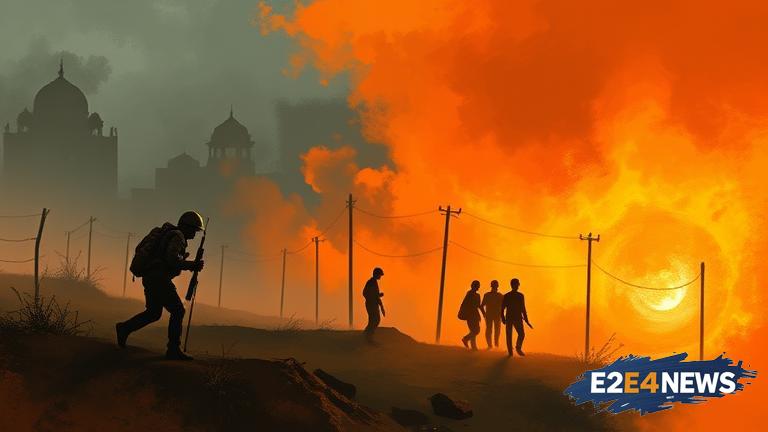India is currently grappling with the twin challenges of external aggression and internal disturbance, primarily fueled by the issue of illegal migration from Bangladesh. This phenomenon has been a longstanding concern for the Indian government, with millions of undocumented immigrants residing in the country. The influx of illegal migrants has not only put a strain on India’s resources but also poses significant threats to national security, social cohesion, and economic stability. The situation is further complicated by the fact that many of these migrants are settling in sensitive border areas, thereby compromising the country’s territorial integrity. Furthermore, the presence of illegal migrants has also led to an increase in criminal activities, such as smuggling, human trafficking, and terrorism. The Indian government has been taking steps to address this issue, including the implementation of the National Register of Citizens (NRC) and the Citizenship Amendment Act (CAA). However, these measures have been met with resistance and protests from various quarters, including opposition parties, civil society organizations, and migrant communities. The issue of illegal migration has also been linked to the broader debate on nationalism, citizenship, and identity in India. Many argue that the influx of illegal migrants is a threat to India’s cultural and religious identity, while others see it as a humanitarian issue that requires a more compassionate approach. The Indian government has also been engaging with the Bangladeshi government to address the issue of illegal migration, including the signing of agreements on border management and cooperation. Despite these efforts, the issue remains a major challenge for India, with many calling for more stringent measures to curb illegal migration. The situation is also complicated by the fact that many Indian citizens are sympathetic to the plight of migrants, who are often fleeing poverty, persecution, and violence in their home country. However, this sympathy is often tempered by concerns about national security, job competition, and cultural identity. The issue of illegal migration has also been politicized, with various parties using it as a rallying cry for their respective agendas. The Indian government has been accused of using the issue to polarize voters and distract from more pressing issues, such as economic development and social welfare. On the other hand, opposition parties have been accused of being soft on illegal migration and compromising national security. The debate on illegal migration has also sparked a wider discussion on the role of citizenship, identity, and belonging in India. Many are questioning what it means to be an Indian citizen, and how the country can balance its obligations to its own citizens with its humanitarian responsibilities to migrants and refugees. The issue of illegal migration is also closely tied to the broader issue of border management, with many calling for more effective measures to secure India’s borders and prevent illegal crossings. The Indian government has been investing in border infrastructure, including fencing, surveillance systems, and border patrols. However, the terrain and geography of the India-Bangladesh border make it a challenging task to completely seal the border. The issue of illegal migration is a complex and multifaceted one, requiring a nuanced and comprehensive approach that takes into account the humanitarian, economic, and security dimensions of the issue. Ultimately, the Indian government will need to balance its obligations to its own citizens with its humanitarian responsibilities to migrants and refugees, while also ensuring the security and integrity of the country’s borders.
